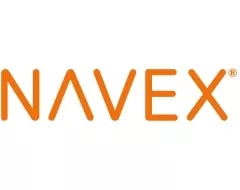Within the coming month we are expecting the EU whistleblower protection law to receive final approval. Once it comes into effect, not only will companies be legally obliged to provide a whistleblowing platform, the law will also force you to think carefully about how you investigate whistleblower reports. We welcome this aspect of the law. We have all read about companies that have experienced serious incidents of misconduct, despite having a whistleblowing function. And even worse, after receiving whistleblowing reports their whistleblowing team has not reacted and investigated efficiently.
Whistleblowing cases simply cannot end up slipping between the cracks. Indeed, we always stress to customers the importance of thorough and respectful whistleblowing case management for building trust. Trust is a decisive factor in a person's decision to blow the whistle. How whistleblowing reports are received and investigated – or not – will either build or destroy that trust.
The receiving, management, investigation and closing of cases is what we mean by whistleblowing case management, and the new Europe-wide law places very clear requirements on companies to get it right. Here are some of the obligations your organisation will need to meet, which will also enhance your whistleblowing process.
Timely response. Let the whistleblower know quickly that the report has been received. According to the new law, an acknowledgement of receipt of the report must be sent to the whistleblower within seven days.
A professional investigation is not an explicit legal obligation according to the new law. However, the need for a proper investigation of whistleblower reports is implicit in the directive's texts, for example... "In all cases, the reporting person should be informed of the investigation's progress and outcome..."
WhistleB's advice is to treat investigations with the utmost confidentiality and with respect for both the whistleblower and the person accused. Establish processes for any action plans needed based on the outcome of the investigations. Investigations can require very specialist skills which leaders may need to source externally. Alternatively, you might want an external team to receive and investigate your reports. In this case, your whistleblowing system needs to allow external users to be securely added into the investigation process. This is one of the features of WhistleB's whistleblowing solution.
Competent people. The new law states that companies need to appoint "impartial receivers of the reports" and that the "person(s) should have the competence to follow up reports and to communicate with the whistleblower". We cannot stress enough the importance of having a credible team for case management and investigation. Our customers often include roles from different parts of the company in the team. This strengthens the integrity of the team. According to responses in the WhistleB 2019 customer study on organisational whistleblowing, customer whistleblowing teams most often included: legal and compliance, internal audit and risk, ethics and HR. Having Board representatives on the team is also becoming more common.
Diligent follow-up and feedback to the whistleblower. The forthcoming law requires companies to have procedures that follow up the report diligently and provide feedback to the whistleblower in a reasonable timeframe. A whistleblower should also be given the opportunity to be consulted and provide extra comments. This will be ground-breaking for many companies that have not previously considered reporting back, on the actions envisaged or taken, to the person who originally blew the whistle.
The content of this article is intended to provide a general guide to the subject matter. Specialist advice should be sought about your specific circumstances.

